

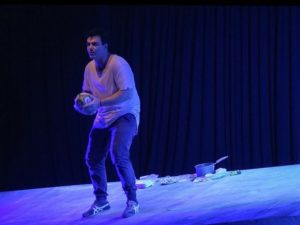
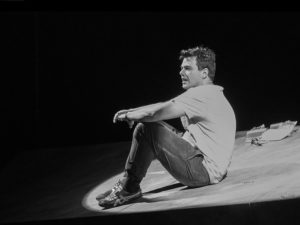
Canberra City News
- Joe Woodwards
A RARE standing ovation greeted Peter Cook and the production team at the completion of the performance. "Breaking the Castle" has the power to transform through its writing, acting, design and relationship with its audience.
The small space at The Street Theatre created a symbiotic relationship between spectator and actor; creating the potential for one of the most powerful experiences of theatre. In many respects Peter Cook’s play answers the question of "Why theatre?"
An incisive text about addiction drawn from real life was heightened by stunning design elements. Director Caroline Stacey has shaped a performance facilitated by Imogen Keen’s deceptively simple yet highly evocative set, Kimmo Vennonen’s visceral sound design and Gerry Corcoran’s striking lighting design.
Cook’s performance can be described as energetic, sensitive, openly engaging and highly transformative. The ability to project moments in a person’s life through physical gesture, movement around the set and quick vocal changes to suggest different voices, both real and imagined, made for an experience unique to the theatre.
This is truly the place of the actor; the spiritual realm of the Shaman; the conduit of the gods! He is both storyteller and the embodiment of human archetypes suggesting realities and meanings far beyond any literal sense of the words.
To describe more in a few words here is to degrade the critical elements of the theatre experience. The production might easily be the basis for full study and documentary on theatrical creation; such is its power. It fully deserved the standing ovation. It needs extension and audiences well beyond the current season.
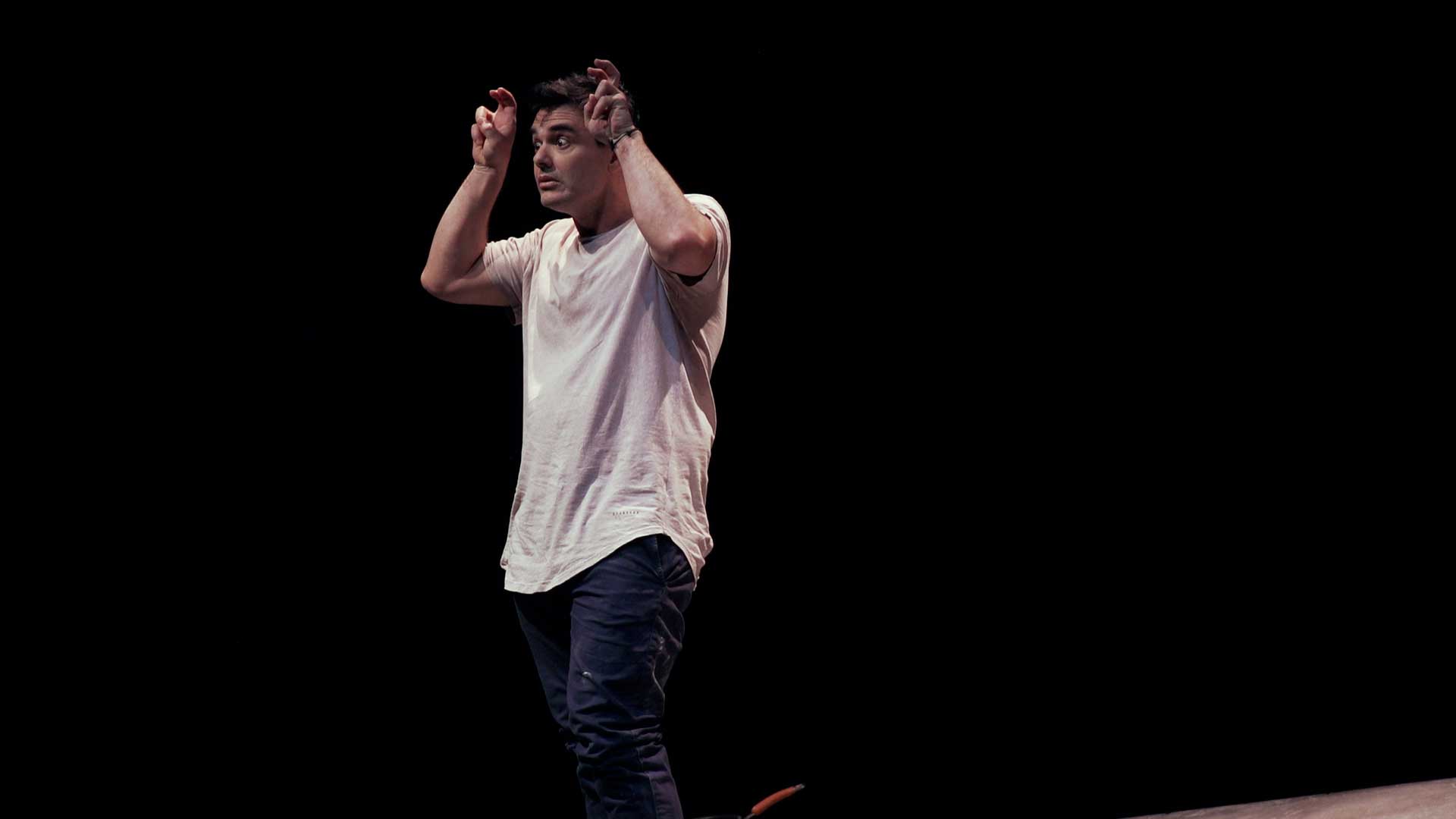

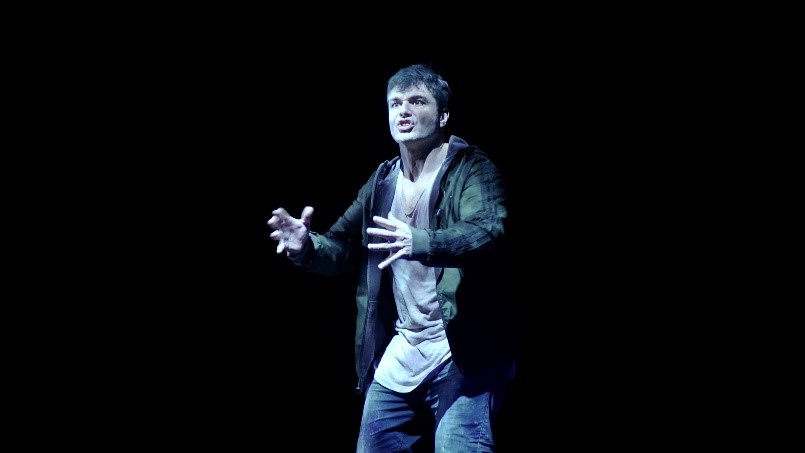

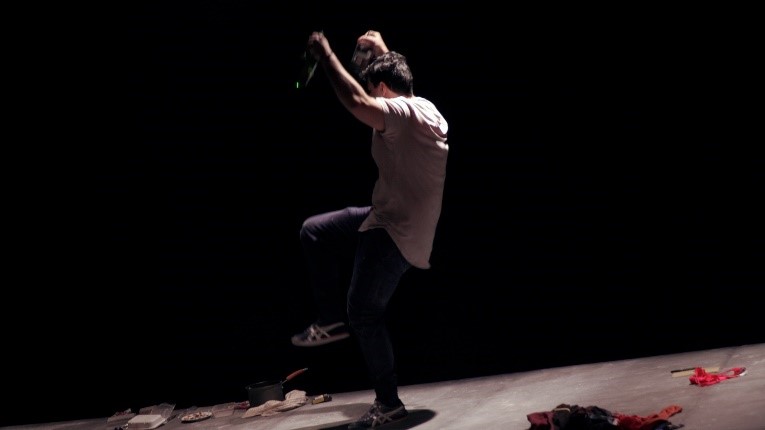
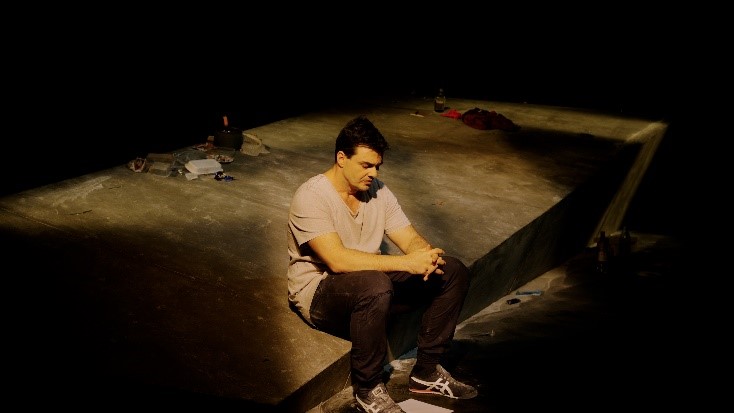
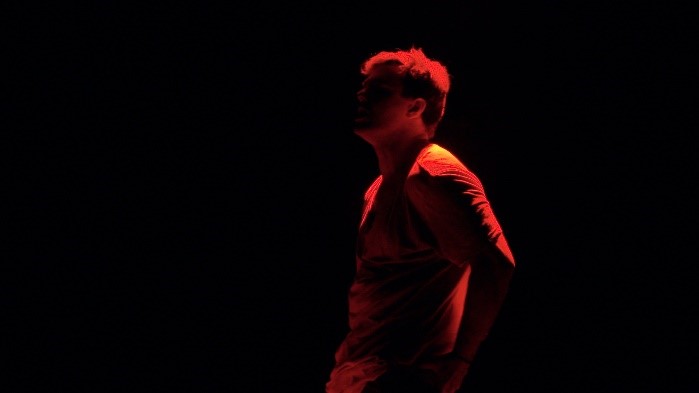
New Territory, Adventures in Arts Writing
- Rosalind Moran
Breaking The Castle is a work of empathy in more than one way. The protagonist is challenged to learn to like himself. The audience is led through a story that humanises people with addiction issues, encouraging compassion for those who have fallen between the cracks. And the playwright himself, Peter Cook – who is also the play's sole actor – evidently grappled with his own history in bringing this play to the stage. A story with elements drawn from real life, Breaking The Castle is the creation of someone who has faced demons and learnt to accept them as part of his story – making this play both powerful and moving.
The play's protagonist, Dave, is a struggling actor with substance abuse and mental health issues arising from past trauma as well as current precarity. Through exploring his life and how it has led to his current rock-bottom state, the play touches upon various social and cultural issues that merit interrogation, for these are the issues that can ruin lives and have someone labelled 'troubled' or ‘bad’ in the eyes of society. These issues include sexual abuse, conflict-ridden families, the inability to effectively grieve for a lost loved one, and the ongoing erosion of one’s self-worth through criticism.
Throughout the play, we notably see how different people – such as parents, strangers, and casting agents – contribute to Dave feeling undervalued and hopeless, which helps fuel his self-loathing, self-harm, and desire to forget. In this way, the play provides a powerful reminder of the importance of seeing and listening to others and of recognising that everyone has something to offer. Indeed, one of the most heart-breaking moments in the play is when Dave experiences a drug-induced psychotic episode and is desperate to be near others in order to feel safe. As he stands on a street corner, a stranger tries to talk to him but soon gives up, saying “You’re a piece of shit.” Dave, even in his drug-induced haze, hears these words clearly. "I know," he replies.
The audience watched his face fall, his posture slump. You could have heard a pin drop.
This play has a lot to offer. It shows both how a person can become an addict as well as the factors that can lead to their recovery. It explores how having a friend or a family member who doesn’t give up on you can mean the difference between recovery and a life on the streets. It exposes the class factors embedded in addiction and recovery, hammering home the fact that beating addiction is often less about willpower than it is about support networks and money. And in some of its most darkly humorous moments, the play even skewers some of the exploitative and degrading norms within the acting industry. In short, it’s ambitious in the best kind of way.
Breaking The Castle’s staging and production is also a highlight. The set is simple yet inventive: a jagged, tilted floor serves as the stage, and its blunt unevenness reflects the fragmented psyche of the play’s protagonist. Littered with takeaway containers, cigarettes, bottles, and various other forlorn items, the set offers every prop needed to tell the story without the space looking artificial or overdone. Lighting and sound effects help magnify Cook’s changes in mood as he navigates drug highs and terrible lows. Cook’s acting is also impressive as he bounces between characters and swings across the full pendulum of emotions – his performance on opening night was almost ironically good, considering his main character is an actor who struggles to find work. Indeed, it is arguably above all the energy and emotion Cook brings to his play that helps make it a success: his performance is truly outstanding.
The strong message underpinning the play helps give it its value: the story’s emphasis on the importance of believing in people and fostering their self-worth is touching and merits being shared. Lines such as “no-one chooses to become an addict” and “if you don’t address trauma, you can’t address drug addiction” also stood out as points that need to be communicated and repeated within our society – meaning this play has valuable potential as a teachable work of art.
That said, determining the value of this play is not wholly clear cut: addiction is a widely-explored theme and the story of a recovering addict – like the quintessential coming-out story, for example – has been explored many times before. This means it can be difficult to make stories like these ones fresh; and in the case of Breaking The Castle, I’d argue the story doesn’t necessarily offer an interpretation that is radically new. Dave is indeed an everyman of addiction, and one could imagine a play very similar to this one being developed elsewhere by someone who has undergone similar experiences.
Nevertheless, there is also something powerful about the decision to make Dave such a broadly relatable character. His experience is not depicted as being so unique that it could have only happened to him; rather, his is the tale of just another person trying to make a place for themselves in this world. It humanises those who are often ignored and encourages a philosophy of compassion – a laudable achievement for any creative work.
The opening night performance of Breaking The Castle received a standing ovation. It was well-deserved.
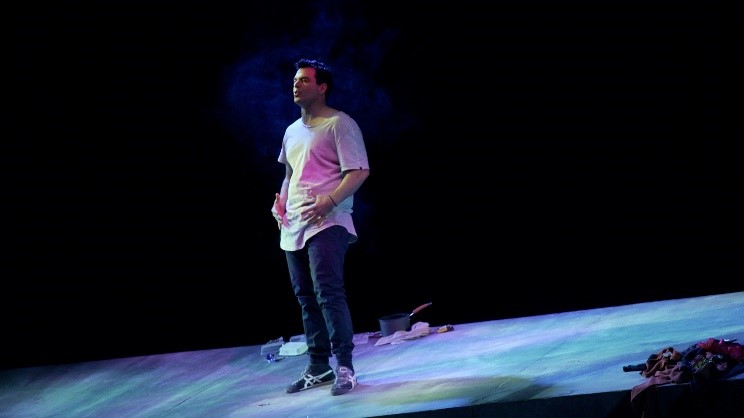

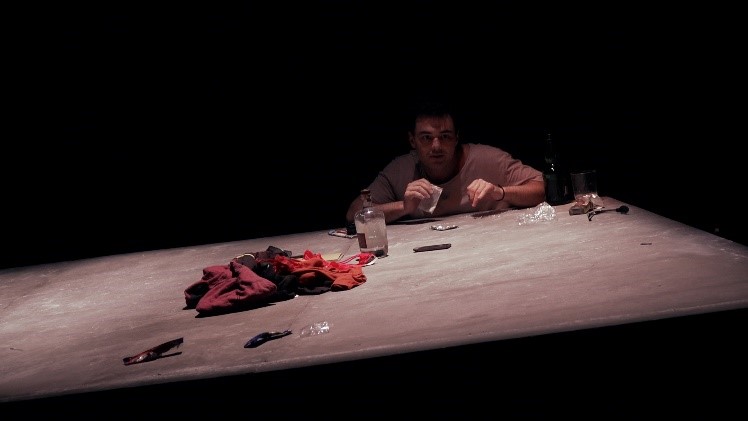

Canberra Critics Circle
- Len Power
There have been a lot of plays and films about addiction but it’s rare to be able to really understand the personal hell of people caught up in this situation and the difficulty of trying to break free.
Peter Cook’s play about addiction and recovery, ‘Breaking the Castle’, succeeds because of the quality of the writing, the extraordinary performance of Peter Cook himself and the strong production by the director, Caroline Stacey, and the technical team at the Street Theatre.
The writer and performer, Peter Cook, graduated from the Victorian College of the Arts in 2001. He has worked extensively in theatre and film and has also worked as an arts educator across the country for major theatre companies, writing, devising and directing numerous plays with students.
In ‘Breaking the Castle’, Peter Cook plays Dave, a young man rushing headlong towards oblivion in a haze of drugs and alcohol. An opportunity to change presents itself in a rehabilitation clinic in Thailand but redemption comes at a price. Dave must confront his personal demons head on and learn that, even in recovery, the past will always be there waiting to claim him again.
Peter Cook clearly understands the type of man he is portraying and his knowledge of addiction and the process of recovery give the play an ultra-realistic edge that is very involving. His is a marathon performance that never falters. Speaking at high speed and swapping quickly between characters involved in his life, his clarity of diction and depiction of changing emotional levels are excellent. The most extraordinary aspect of his performance is the change from an out of control addict at the start of the play to a man who has finally found a fragile type of peace within himself through recovery.
Caroline Stacey’s direction of this play and her overall concept for the production is masterful. She has ensured that the pace and depth of performance, physically and verbally, is believable at all times. The angular setting by Imogen Keen is aesthetically pleasing as well as practical. The complex lighting by Gerry Corcoran and sound by Kimmo Vennonen adds immeasurably to the atmosphere, especially in the sequences showing the actor deep in the throes of addiction.
This is a play that gives a very real insight into the problems of addiction through an involving journey with an ultimately likeable and recognizable character. It’s also an exciting theatrical experience.
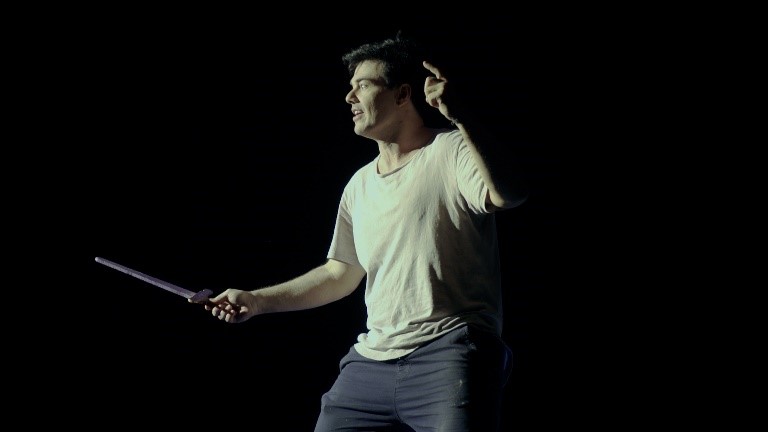


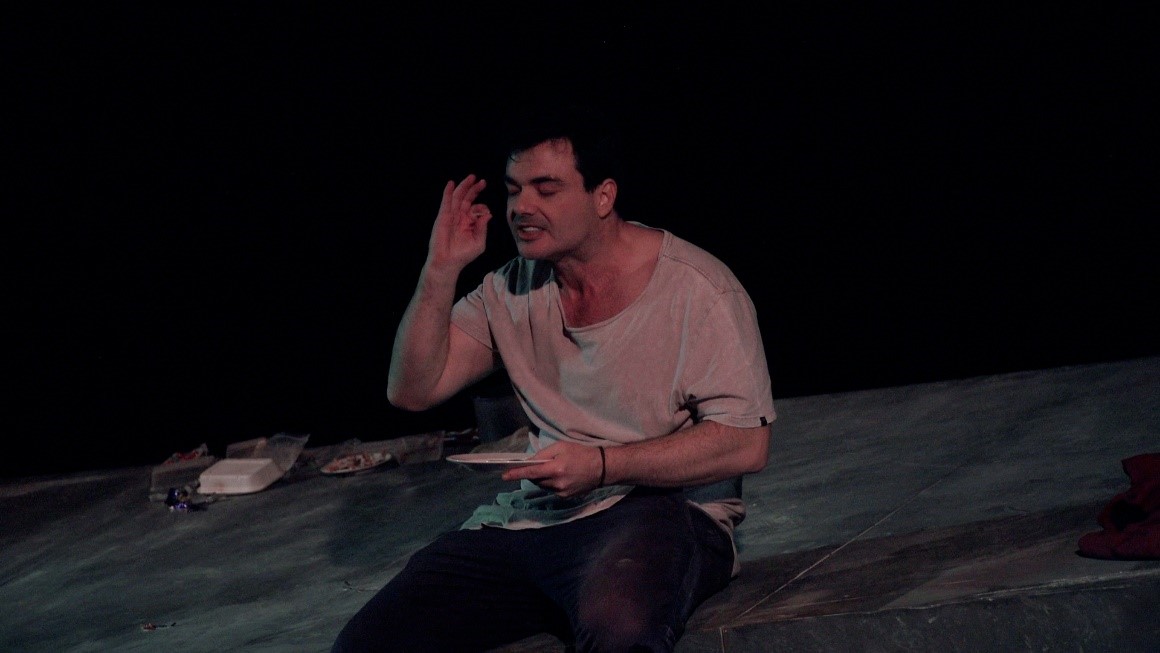
Rock City Jester
- Arne Sjostedt
Capturing the experience of going through drug addiction and out the other side, actor and writer Peter Cook weaves an expansive tale that locks you in.
Thankfully Cook and his production team get the balance right between representing the sordid life of a coke/ice/sex addict and capitalising on the opportunity to present an engaging and enlightening piece of theatre.
There are moments in the play where you are uplifted into the mind’s eye of a coke binge, or shown the beatific function of nature in the unique patterns on butterfly wings. The highs are thrilling, his panic real, and the mercy of life equally as tangible when an opportunity to escape his self delivered torture presents itself.
What a life humans lead as we struggle through gaining insight into our drives and lust for diversion. Though as Cook’s character discovers, there is no easy street when addiction grips.
Masterfully directed by Caroline Stacey, proving an opportunity for Cook to show off his “triple A grade” acting chops to wonderful effect, there was a crafted rhythm to the play that made sure people stayed engaged.
When the lights went down on this well designed production - everybody left with a sense of awe at the capacity of art and humanity to triumph over tragedy - if you give it the hard work opportunity asks for.
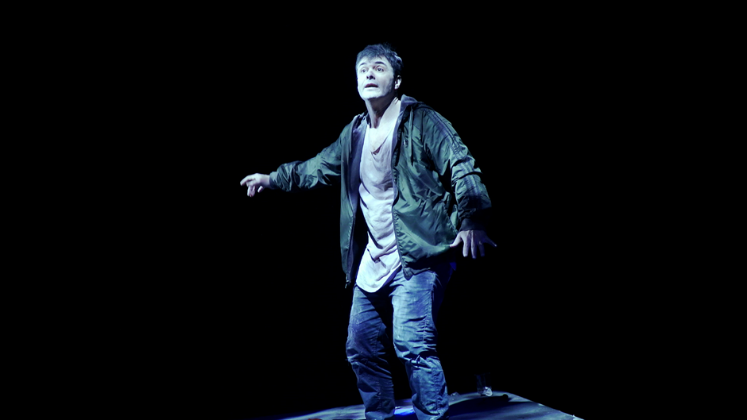

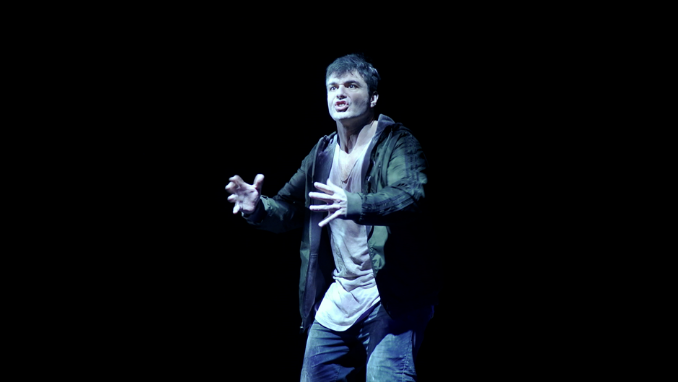
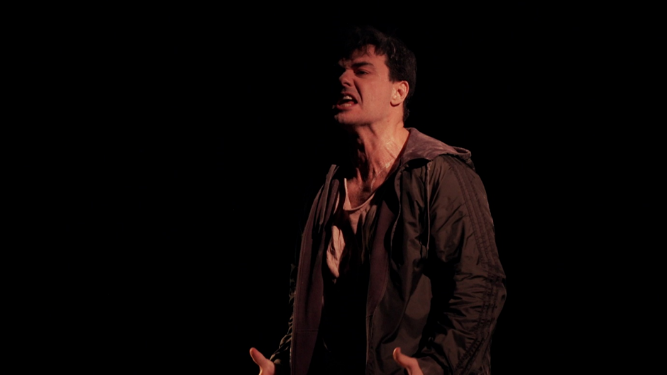
Stage Whispers
- Len Power Cathy Bannister
The latest offering from The Street’s First Seen program, Peter Cook’s first play Breaking the Castle, is an extraordinary and beautiful portrait of an actor’s life as he descends into and then overcomes meth addiction. It begins with what seems like a conceit: David Smith (played by Cook) as an actor, talking about how in control and connected with the audience he is and more tenuously, how the audience themselves were reacting. As the opening monologue progresses, the character hasn’t yet built a rapport and it feels a little like we are being told how we should respond. But then, David begins building this relationship with the audience and by the end, however, it was absolutely true—the audience were right there with him, feeling his urgency, despairs, desperation and relief.
The production springboards off the script’s poetic descriptions, and overlays a perfectly-timed sound and lighting design, which works in the small area of Street’s Street 2 theatre space to immerse you in David’s psyche, making you feel almost as if you are literally inside David. The design moves between realistic to surreal and dramatic, and producing an overwhelming, visceral experience, which is something Street’s design team of Imogen Keen (production), Gerry Corcoran (lighting) and Kimmo Vennonen (sound) excel in creating. There’s a moment when David lights a meth pipe. In reality, it’s a miniscule event, but it’s something that the addicted David is focussed on with every fibre of this being. Here the light and sound work to blow out that tiny event, which has props you can barely see, to become as focal as it is to David. They do this by amplifying the tiny chink noise as the rock hits the bottom of the pipe, and the little hiss as the lighter flares underneath, and shrinking the light to throw focus on David, his words and his paraphernalia. At other points, the experience of being high is conveyed with lighting appearing as veins, as though looking at light through the insides of the eyelids; later red light throbs with the lyrical rhythms of the description of orgasm while high.
This may seem bleak but ultimately this is a narrative of hope, as David spends time in an addiction clinic in Thailand and finds the means to pull his life back together.
"For the first time in years, that took me out of the theatre," was my companion’s verdict. This was an incredibly powerful work that was a privilege to see.


